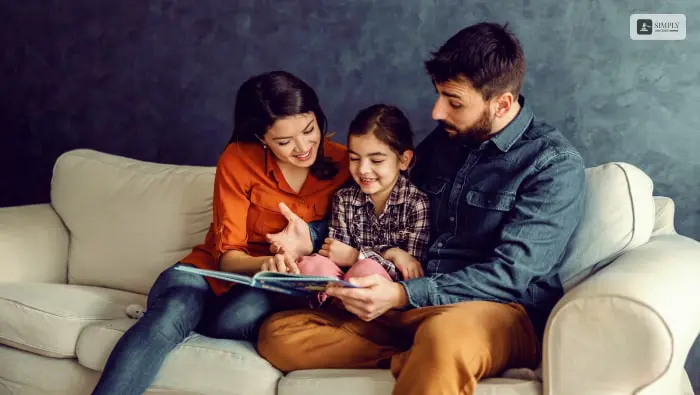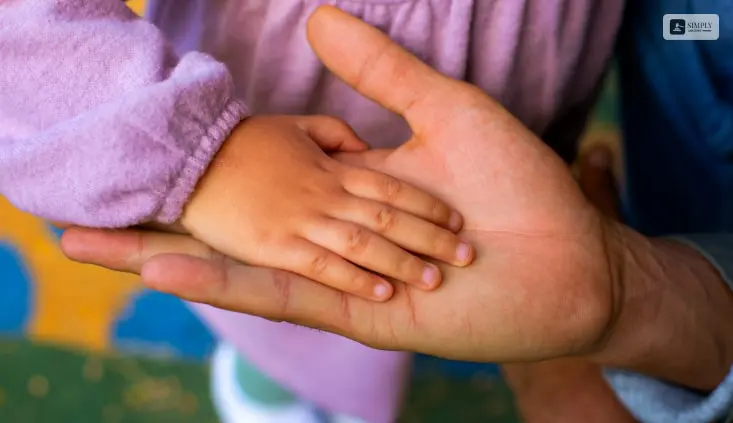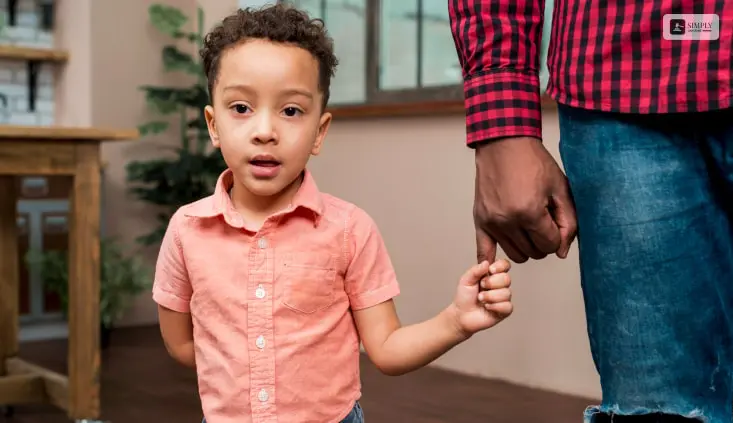
Adoption is a boon to millions of parents all across the United States. People who cannot have kids or want to adopt children in need to good and loving homes become adoptive parents through this process.
Questions in mind…
- Are you scared that you do not have the right requirements to be adoptive parents?
- Do adoptive parents get paid like foster parents do? (Well, no, they don’t.)
- What disadvantages do stepparents face that adoptive parents do not?
- What is the difference between foster parents, step-parents, and adoptive parents?
- Can step-parents be adoptive parents?
We are here to answer it all for you. Read on!
What Is Adoption?

Adoption is the legal process where a person or a couple becomes the adoptive parents. Adoptive parents are legal parents of a child who is not a biological child to them.
When a child is adopted, they become the child and a part of a new family. and the people adopting
What Does Adoption Involve?

There is a creation of parental rights. This means the new parents take on all the rights and responsibilities of being the child’s parent.
A New Legal Relationship
A new legal relationship is created through adoption between the child and the adoptive parents/legal parents.
- After the adoption is formally completed, it gives the child and the adoptive parents the same legal rights and responsibilities as if they were biologically related.
End Of Rights Of Parental Biological Parents
Before a child can be adopted, biological parents must be willing to give away their legal rights as a parent.
- This means that they have to expressly terminate or end these rights. After this is done, the biological parents will no longer have legal rights to make any decisions for the child, which they did earlier. All rights will now be shifted to the adoptive parents.
Consent Is Key
Consent is necessary for adoption.
- The legal authorities carrying out the adoption usually consider the needs of the child, whether the child wants to be adopted by that particular couple, and if the legal guardians of the child are giving consent to such a process.
Free Will
It is very important that the consent is given voluntarily.
- This comes when biological parents or the legal guardian have reason to believe that the adoptive parent or parents can provide a good and comfortable home for the child.
Court Procedure
Adoption is a legal process that starts with a court process.
- A judge first reviews all the necessary documents submitted by the potential parents. This makes sure that the adoption is looking out for the best interests of the child. Once the court gives its approval, a child gets a new family.
Adoption Agencies
These agencies initiate the process.
- These agencies help parents willing to adopt match children who are in need of good homes. Adoption agencies also let the court know that the child in question is willing to be adopted into a new home. They also help with the legal process of adoption.
What Are The Types Of Adoptions You Should Know About As Adoptive Parents?

Are you confused about which kind of adoption you want for yourself? So, here is a detailed discussion of the different types of adoption that can help you out as future adoptive parents. You can even go through the relevant case laws to get a better understanding of the various types.
Type 1: Open Adoption
In this kind of adoption, the adoptive parents and birth parents have an open contact system where they talk and share information related to the child.
- Now, if you wish to have an open adoption, it does not mean you will have to keep them informed of every little detail.
- The level of openness that you choose can vary on you.
Case Law
The Case of Doe v. Sundquist (2000) highlighted the complexities of open adoption agreements and the need for clear terms.
Type 2: Closed Adoption
This is the type of adoption where there is no contact between birth and adoptive families after the adoption.
- There can also be limited contact.
- For a close adoption to successfully work, the information that is private or rather identifying in nature is kept confidential.
- Along with that, the families have little to no ongoing interactions
Case Law
In the case of Raleigh Fitkin-Paul Morgan Memorial Hospital Trust v. Haraeb (1997), the importance of confidentiality in adoption cases was dealt with.
Type 3: Private Adoption
This is known as independent adoption.
- It happens without the involvement of an adoption agency.
- The biological or birth parents and adoptive parents try and connect directly or through a lawyer.
- They go through the legal process on their own till the adoption is successfully completed.
Case Law
In the case of Adoption of B.L.V.B. (2007), the court ruled on the role of biological fathers in private adoptions.
Type 4: Domestic Adoption
This is when a child is adopted within the same country they were born in.
- Here, the biological parents voluntarily choose to put up their child for adoption.
- The adoptive parents are then selected.
- Next, a legal process takes place to give the child a new family and home.
Case Law
In the case of the Adoption of B.G.S. (2006), the court upheld the importance of considering the best interests of the child when making adoption decisions.
Type 5: International Adoption
In this type of adoption, as can be understood from the name, a child from one country is adopted by parents from another country.
- In this type of adoption, the involvement of adoption agencies sort of becomes necessary.
- The parents work with agencies to best understand international laws and requirements.
- They should be eligible for adoption according to the laws in the child’s country as well as their own.
Type 6: Foster Care Adoption
This kind of adoption takes place when a child in foster care is adopted into a family permanently.
- Children who do not have families return to enter the foster care system in the USA.
- Foster parents surely have legal custody of the child but are not the child’s legal parents.
- Foster parents also have rights and responsibilities while the child is in their care, but major decisions are often made by child welfare agencies.
- When the adoption takes place, a permanent setup is entered into.
Type 7: Stepparent Adoption
This kind of adoption takes place when a step-parent legally adopts a child from a previous relationship.
- This child in question is not her biological child.
- After becoming the adoptive parent, the step-parent starts sharing rights and responsibilities with the biological parent.
Case Law
In the case of Marriage of Carney (1992), the Court upheld the role of consent from the noncustodial biological parent.
What Should Adoptive Parents Have to Do To Adopt A Child?

This is the part where the details come in. In this section, we will tell you all about the requirements and the steps to adopt a child.
You Have To Be 18 And Above At Least
The parents looking to adopt a child must be legal adults.
- This means they need to be at least 18 or 21 years old, depending on which state they are looking to adopt.
- This means that the person looking to adopt a child must have the mental and legal capacity to suit the child’s needs.
You Have to Qualify with The Social Worker
An adoptive parent will go through an extensive process of interviews.
- This is a process where a social worker visits their home and checks they can provide a safe and suitable home for a child.
- The worker will hold detailed discussions with the family members to understand why they want to adopt a child.
Other Requirements
An adoptive parent should be financially stable enough to provide for the child’s needs. A child should have a secure home.
Background Check
A criminal background check is a must for all parents looking to adopt. This is done to ensure the child’s safety in the house they are adopted into/.
Health Factors
All parents looking to adopt should be in good physical and mental health. They should be able to look after the child’s well-being.
Requirements
In case the parents are working with an adoption agency, the parents need to meet their requirements to prove that they are ready for adoption. The agencies need to make sure that the parents are well-prepared for the adoption journey.
How Can You Adopt A Child?

While the process of becoming adoptive parents may seem complex to many, here is a humble attempt from our side to break it all down into simple steps for you.
Step 1: You Should Decide If You Truly Want To Be Parents
The journey of adoption begins in your mind first.
- You must first decide if you truly want to go through the process.
- It begins with you learning all about adoption and understanding the different types of adoption, such as domestic, international, foster care, and more.
- Consider what type of adoption best goes with your family’s values, lifestyle, and preferences.
Step 2: Do You Want The Involvement Of An Agencies
There are different adoption paths.
- You could choose the one that fits you or your family best.
- You can choose if you want to work with adoption agencies or attorneys or pursue independent adoptions, depending on your choice.
Step 3: You Can Attend Workshops
If you decide to work with adoption agencies, make sure to attend their sessions or workshops. That way, you will get to learn a lot about the following:
- adoption process,
- requirements,
- and timelines.
Step 4: Qualify The Social Worker’s Home Study
A home study is when a social worker visits your home to check if it is a safe and suitable environment for a child. You’ll also have to discuss the following:
- your motivation for adopting,
- your background,
- and your parenting style.
Step 5: Set Up A Good Adoption Profile
Prepare an adoption profile with the following:
- photos,
- letters, and
- information about your life,
- your values and dreams for your future child.
This will help you establish your dedication to the whole process and toward the betterment of the child.
Step 6: Search For A Child To Adopt And Match
Your adoption agency or chosen person should help find a child who matches your preferences.
- Once a child is matched with your family, you will have an arranged meeting with the child.
- You will be spending time together and finally bring them into your home, their new home.
After the placement takes place, post-placement visits are arranged by the authorities to make sure that the child finds their new environment comfortable.
Step 7: Consult With Your Adoption Lawyer and File the Petition
This is a legal petition for adoption in court.
- The court reviews your application, conducts background checks, and assesses the child’s well-being.
- After that, the court will carry out a hearing where a judge will review the facts of your case.
There are various problems that even adoptive parents face, as well as the adoptive child. Some technical hardships include:
- Coping with confusing rules and paperwork when adopting a child.
- Having to deal with multiple checks and inspections to make sure your home is safe for the child.
- Often the adoptive parent has to begin a legal battle with the birth parents who change their minds about the adoption.
- Paperwork never ends. Legal formalities will always be a part of the process.
Are There Any Difficulties That You Can Face As Adoptive Parents?

There are various problems that even adoptive parents face, as well as the adoptive child. Some technical hardships include:
- Coping with confusing rules and paperwork when adopting a child.
- Having to deal with multiple checks and inspections to make sure your home is safe for the child.
- Often the adoptive parent has to begin a legal battle with the birth parents who change their minds about the adoption.
- Paperwork never ends. Legal formalities will always be a part of the process.
To Conclude: How Can An Adoption Lawyer Help You?
An adoption lawyer can help adoptive parents in multiple ways. Here is why you could hire one.
- They can help you understand the adoption laws and rules that apply to your situation.
- They’ll guide you through the paperwork needed to adopt, making sure it’s done right.
- They ensure you meet all legal requirements, like background checks and home studies.
- An adoption attorney will explain the rights of birth parents and help with legal agreements.
- If things get tricky, they are ever ready to solve legal problems that might come up.
They are with you every step of the way to help finalize the adoption. Finally, an adoption attorney will protect your rights as adoptive parents throughout the process.
Read More:


